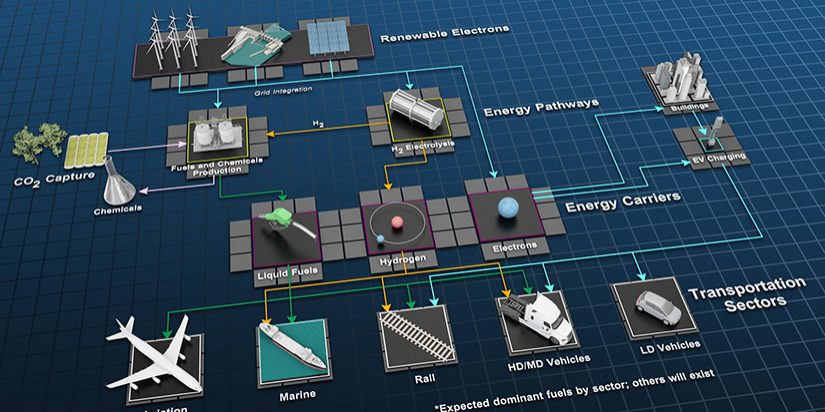The transportation sector is the largest source of greenhouse gas emissions in the United States, accounting for about 28% of total carbon emissions. Turning that metric to zero stands as a critical task in the global push to drive down emissions to avoid the worst impacts of climate change.
According to the Intergovernmental Panel on Climate Change, greenhouse gas emissions must be reduced by 50%–85% by 2050 to limit global warming to two degrees Celsius (four degrees Fahrenheit).
To help light that path to net-zero emissions, the National Renewable Energy Laboratory (NREL) has released a comprehensive vision for deeply decarbonizing transportation. It is a strategy rooted in cross-cutting research and engineering to enable industry stakeholders, communities, government agencies, and early adopters to meet their climate goals.
“At the basic level, our strategy is simple: pair the best technology with the right application—whether that’s an electrified ride to school, a hydrogen-fueled big rig, or a commercial flight powered by low-carbon biofuel,” said Chris Gearhart, Director of NREL’s Center for Integrated Mobility Sciences. “We envision a mobility system fueled with clean, renewable energy delivered directly by vehicle electrification or indirectly by low-carbon, energy-dense fuels and renewable hydrogen for those sectors, like marine and aviation, that are harder to electrify.”


